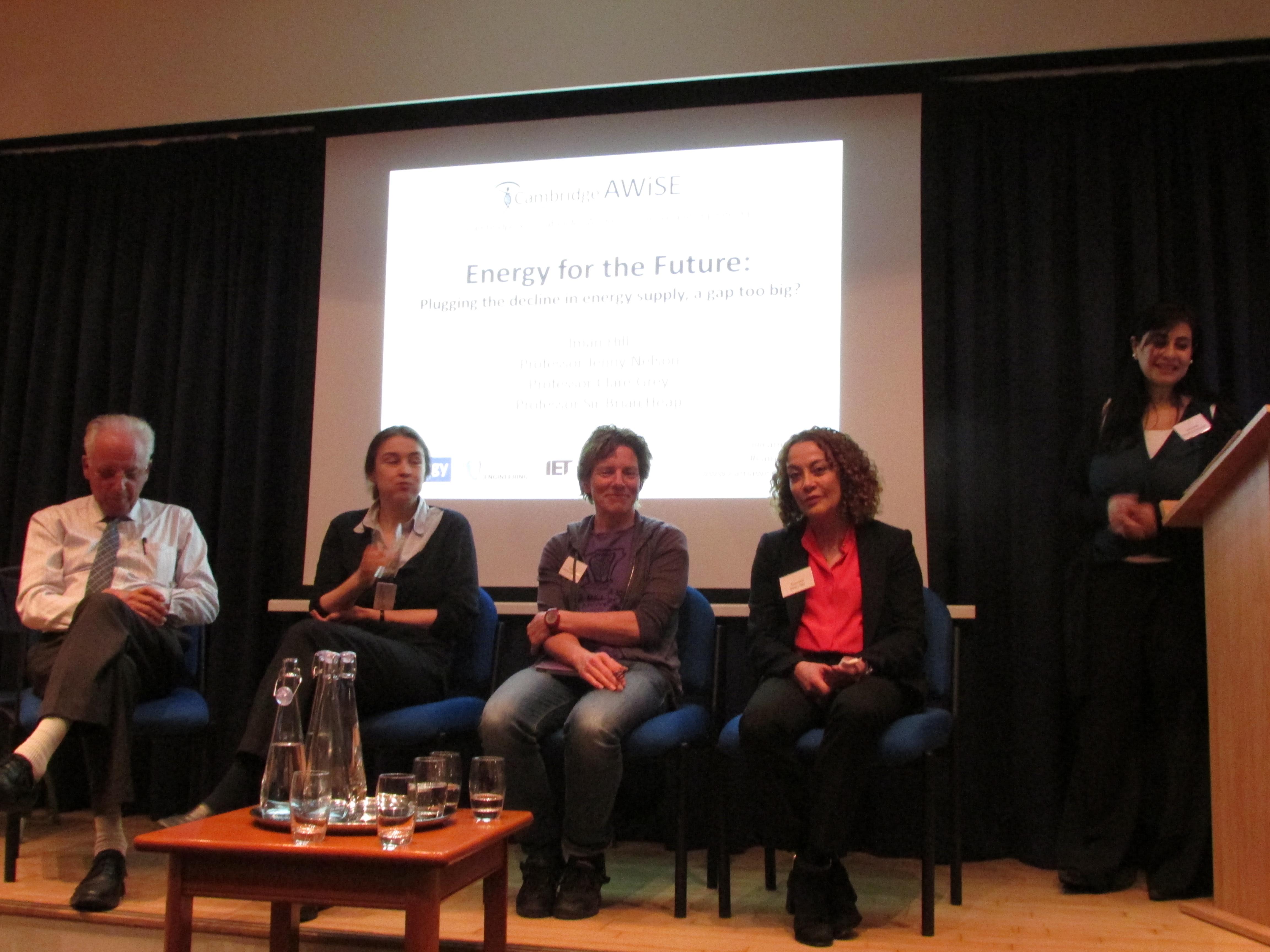
Supported by Energy@Cambridge, CamAWiSE (Cambridge Association for Women in Science and Engineering) hosted the lively “Energy for the Future: plugging the gap in energy supply, a gap too big?” panel discussion at Trinity Hall College on 21 May 2015.
Iman Hill (former Vice President of African Development and Production, Sasol) led the conversation with respect to the oil and gas sector, by introducing the audience to the historic and predicted future energy use: demand for energy will surpass the supply by 2050. She pointed out some innovative ways in which the industry is keeping up with the demand; from subsurface imaging to deep water drilling.
Professor Jenny Nelson (Imperial College London), highlighted use of an energy mix using renewable sources to meet the 2050 energy target, thereby decarbonising the power sector. Solar energy, she explained, is the fastest growing technology in the low carbon pathway and is forecast to be the largest source of electricity by 2050.
Professor Clare Grey (University of Cambridge) underlined fluctuations in energy demand can range from hours to minutes, thus energy storage mechanisms are an critical for meeting future requirement. From flywheel systems to aquifier thermal energy storage, Professor Grey emphasised options must be kept open, and development of an array of methods for energy generation and storage are essential.
Professor Sir Brian Heap (Smart Villages Initiative, former Master of St Edmunds College, University of Cambridge) inspired the audience by introducing the Smart Villages Initiative, a platform investigating universal access to modern energy services, specifically within rural villages. With respect to renewable energy sources, his goal is to shift the balance of opportunities between cities and villages. A challenge for future research is to study more cost-effective ways to promote local solutions, such as home- or institution-based energy systems, thus allowing villages to plug-in, rather than being reliant on a national grid.
The evening rounded off with continued discussions among the audience from the University, industry and speakers over drinks and networking.

